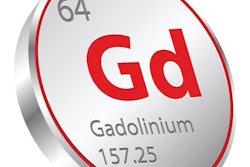Dear MRI Insider,
After spending several years contributing to advanced research, 7-tesla MRI may also soon make its mark in the clinical setting. Currently, three facilities have approval to use the high-field magnet for clinical applications, and they are taking a step-by-step approach with this high-powered modality.
So, how much can 7-tesla MRI advance patient care and what are the current and future challenges for clinicians? As an Insider subscriber, you have an exclusive first look at how the Mayo Clinic, Brigham and Women's Hospital, and the University of Southern California are handling their new technology. Learn more in our Insider Exclusive.
In other news, Italian researchers recently posed the question of whether gadolinium deposition disease (GDD) is really a disease. They found similar side effects among patients who were given gadolinium-based contrast agents and those who weren't and concluded that it might be time to revise the term GDD.
Apple iPhones are also in the news -- and not because of their latest features. There is speculation that newer devices are susceptible to helium leakage from MRI scanners, based on a recent incident at a hospital near Chicago in which more than three dozen devices stopped working after a scanner installation. Now a second imaging facility has also reported problems.
The time it takes to have an MRI scan in Canada has always been an issue. However, researchers in Ontario have developed a method that could double the number of patients who receive MRI scans within targeted wait times by using computer technology to give higher priority to patients who have been waiting the longest.
Finally, we report on an automated heart valve-tracking algorithm that has cut in half the amount of time and variability involved in blood-flow quantification with 4D MRI. The improved efficiency may help convince clinicians that cardiac 4D MRI is useful for assessing valvular heart disease.
AuntMinnie.com will be at RSNA's 2018 annual meeting in two weeks, providing daily coverage of all the big news and major research. If you can't be in Chicago for the event, be sure to visit the MRI Community.



.fFmgij6Hin.png?auto=compress%2Cformat&fit=crop&h=100&q=70&w=100)




.fFmgij6Hin.png?auto=compress%2Cformat&fit=crop&h=167&q=70&w=250)











